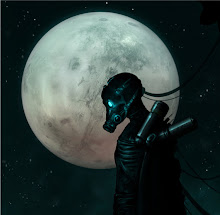
Martin Luther King has had a huge impact on my life. I was still a child during the height of the civil rights movement, and I remember watching the Freedom Rides on TV and begging my mother to let me go to the South. She assured me that there would still be injustices to fight when I got older, and sadly enough, she was certainly right about that.
I was seventeen when King was murdured, and already an antiwar activist in my high school. But it was in the early eighties, when I took part in nonviolent direct actions against nuclear power and nuclear weapons, that I began to read his writings and study his ideas. I became a nonviolence trainer and have had the great privilege of introducing new activists to this form of struggle for nearly three decades.
King, who during his lifetime was reviled, criticized, spied upon by agencies of the government and spat upon by proponents of segregation, would be surprised to find himself now, forty years later, nearly canonized. He would be the first to acknowledge that when we talk about “King” we let him stand in for the courage and accomplishments of a whole movement of dedicated people, men and women, black and white: Fannie Lou Hamer, Bob Moses, Rosa Parks, John Lewis, Ella Baker…the list could go on and on and still never name the thousands of ordinary, unsung hera/os who marched, sat in, rode buses, and went to jail in the fight for civil rights.
King was himself a man of extraordinary vision, courage, and political astuteness, as well as a great writer and orator. He was a deeply moral and religious man who never wavered in his faith that love and justice were forces stronger than hate and violence.
He was also a great strategist. He understood that change does not come easily, and that nonviolence is not the same thing as passivity or inaction. In his “Letter from a Birmingham Jail” he wrote:
“Nonviolent direct action seeks to create such a crisis and foster such a tension that a community which has constantly refused to negotiate is forced to confront the issue. It seeks so to dramatize the issue that it can no longer be ignored… I have earnestly opposed violent tension, but there is a type of constructive, nonviolent tension which is necessary for growth.”
Nonviolent direct action causes trouble. It makes visible the contradictions between our professed values and our actions. It actively challenges the structural violence inherent in oppressive systems. And it is generally unpopular with the authorities, as King was during his lifetime.
Today, on the 40th anniversary of his death, in the town of Bil’in in the Occupied Territories of the West Bank of Palestine, ten nonviolent protesters were injured by the tear gas and rubber bullets with which the Israeli army responds to the weekly demonstration against the wall. They are direct inheritors of King’s legacy.
Two weeks ago, on the anniversary of the U.S. invasion of Iraq, the streets of Washington D.C. were filled with protesters blocking the entrances to corporations that profit from that war. Veterans hung the American flag upside down—the signal of distress—on the Archives building on the Mall. College students spent their spring break taking nonviolence training and marching in the streets instead of partying on the beaches. They too, inherit his legacy.
A thousand different movements for human rights, for peace and social justice have drawn on his thoughts and his example.
When we remember how King stood for peace and brotherhood, let us also remember that he spoke out against the structural injustice of poverty and took an unpopular stand against the violence of war in Vietnam. When we quote his “I have a dream” speech, we might also remember some of his challenging words which apply as aptly today as they did forty years ago. Substitute ‘Iraq’ for Vietnam’:
“As I have walked among the desperate, rejected and angry young men I have told them that Molotov cocktails and rifles would not solve their problems.… But they asked -- and rightly so -- what about Vietnam? They asked if our own nation wasn't using massive doses of violence to solve its problems, to bring about the changes it wanted.”
“Increasingly, by choice or by accident, this is the role our nation has taken -- the role of those who make peaceful revolution impossible by refusing to give up the privileges and the pleasures that come from the immense profits of overseas investment.”
“A nation that continues year after year to spend more money on military defense than on programs of social uplift is approaching spiritual death.”
King was murdered before he ever got to see his dream realized. Today, although we are far from ending his three evils of racism, militarism, and poverty, a black man is running for the highest office of the land, and that is itself a victory. But we have a long way to go. King believed, above all, that the universe is on the side of justice. It’s up to us to prove him right.
Resource: Washington Post: Starhawk

















1 comment:
travel,life
anayelken
yaz kampı
Post a Comment